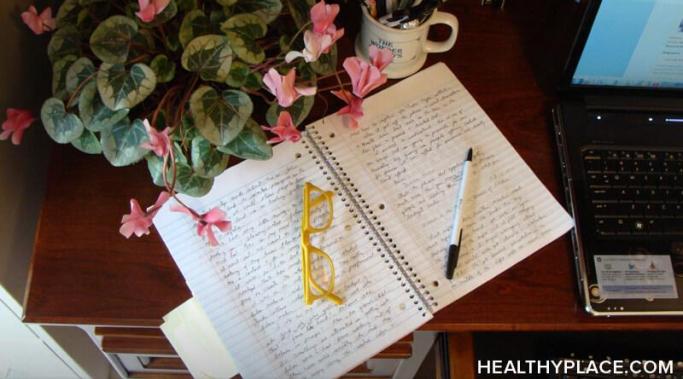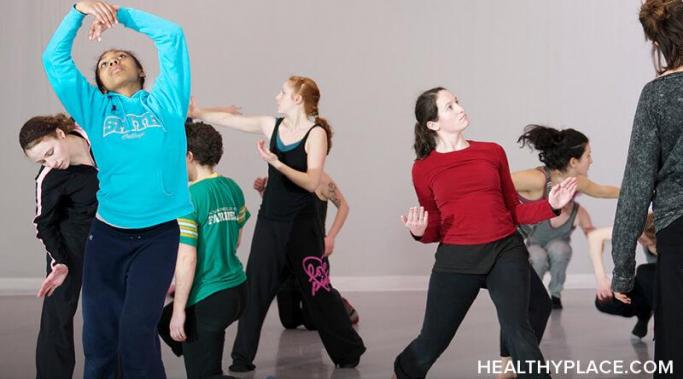Blogs
I've found that boredom and depression are linked. In high school, I had a teacher who used to say that if you are bored, it is your fault, and you are probably boring. Her harsh words stuck with me, lingering in the back of my mind for years. Since then, I have also come across this toxic opinion in the online world. I have just two things to say to everyone who believes it: this statement is untrue, and when depression hits, boredom is not a choice.
Writing helps calm my anxiety in times of chaos. It allows me to express my thoughts and emotions freely, giving me a sense of clarity and control. There are many forms of writing that relieve my anxiety, including creative writing and journaling. Here's how.
I'm worn out from my borderline personality disorder (BPD), pushing me into hyperproductivity and distorting my sense of mental wellness. I used to think my worth was tied to my output, but now I see that this endless chase for productivity is actually undermining my mental health. This idea from borderline was making my mental wellness more fragmented.
My journey towards managing binge eating disorder (BED) took a significant turn when I began to understand the crucial role of nutrition. Proper nutrition has helped stabilize my mood, reduce binge episodes, and improve my overall health. Learning about how food affects my body and mind was a transformational experience. For me, nutrition and binge eating disorder recovery are linked.
I’ve been driving to my intensive outpatient program (IOP) five times a week despite my anxiety about driving. It’s not a very far drive, but it’s a start. Here’s how I have been able to drive, despite anxiety, to the IOP.
A little over four years ago, I came across an opportunity to write about a topic I have been passionate about for quite some time: "Treating Anxiety." The chance to write for HealthyPlace was exciting and so important to me, but at the same time, it was a bit daunting knowing that I would be sharing a part of myself with an audience of readers that I didn't know. It turned out to be one of the best decisions I ever made.
Have you ever wondered how to practice self-care when your therapist is away? As someone taking a break from therapy, this question is often on my mind nowadays. While it is possible to get by without your therapist, the ultimate goal is to thrive and not just survive, so regular self-care is essential. Here's what to do when your therapist is away.
Eating disorders can normalize dysfunction to the point where it starts to feel comfortable, even when it's miserable—but the road to healing breaks that cycle of mess and misery. During the years I spent under the influence of anorexia, suffering was my baseline. I resented this pain, but I also pursued it like a magnetic pull into the chaos that seemed predictable, familiar, and secure because it was all I knew. Healing showed me an alternative in which mess and misery is no longer a constant, and inner peace is attainable, no matter the circumstances.
Much to my surprise, ecstatic dance has helped my self-esteem. For much of my life, I struggled with my mental health, and my self-esteem suffered deeply as a result. Anomalous thoughts and perceptions shadowed my every step, draining the color from my world and leaving me feeling isolated and insignificant. One day, however, I discovered a tool that helped me find a way out of that darkness: ecstatic dance. This form of creative expression brought unexpected joy and a newfound sense of self-esteem into my life.
Navigating dating as a young adult in college is challenging enough, but adding the complexities of managing bipolar disorder turns it into an even more intricate balancing act. I went through my first breakup when I was eighteen, and due to the emotional toll, I decided to take a break before I attempted to date again. At nineteen, I had my first manic episode and was diagnosed with bipolar 1. The emotional toll of processing the trauma related to that manic episode was much worse than the breakup. As a result, I began to fear adding dating back into the equation while my mental health still seemed out of control. I also feared that nobody would be able to understand me after this experience. I became so avoidant towards dating that I did not go on another date until I was manic four years later.









